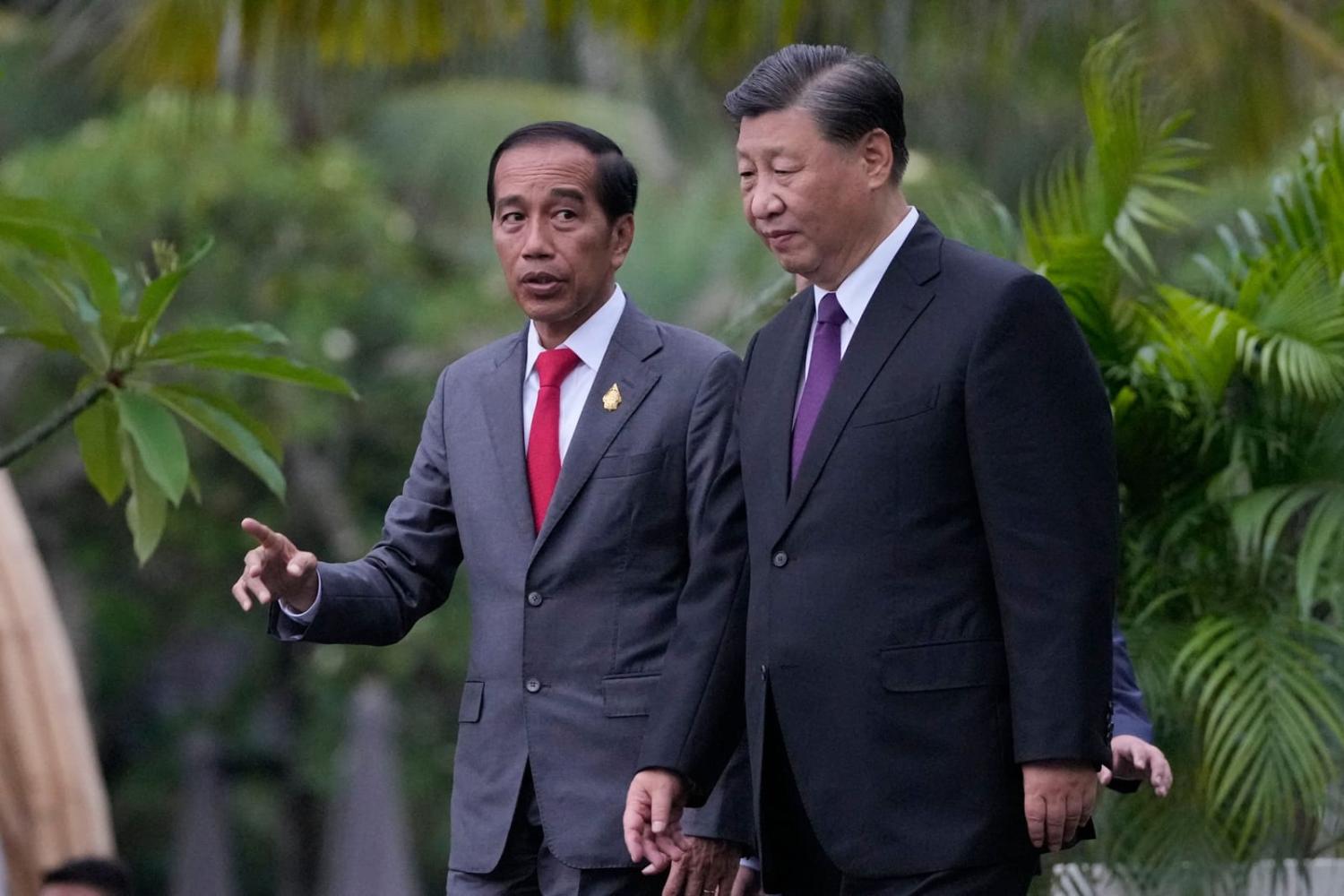China’s vision for a “Global Security Initiative” was first set out by President Xi Jinping at the Boao Forum in April last year. While promising ambitious change, especially for the regional order in Southeast Asia, details are still considered “vague”. Beyond a “concept paper” released in February this year, the grand title has not been matched by proposed agreements or a formal institution – nor has any country so far agreed to join. The initiative merely emphasises the importance of “peacefully resolving differences and disputes between countries through dialogue and consultation”. Nonetheless, Xi clearly envisions a post-Western-led regional order, in which China would take a central role.
As the strategic partner of China and fellow proponent of the Global South, Indonesia has been offered a place in this initiative, itself an emerging power. Indonesian officials have been careful to express appreciation for the invitation, but also made clear they have no intention of supporting or joining. In part, this can be explained by a lack of popular support. The latest ISEAS Yusof Ishak Institute survey of elite opinion found Indonesians have little or no confidence in the idea, reflecting a wider public scepticism, shown in the 2021 Lowy Institute Indonesia Poll, which found almost half of respondents believe China will one day pose a threat to Indonesia.
But China’s invitation does leave Indonesia’s policymakers with a quandary. China clearly sees the chance to expand its geopolitical influence, so will continue to drive the idea. And China may itself seek to capitalise on its Belt and Road Initiative – in which Indonesia participates – as a pressure point.
Then there is the ongoing dispute over China’s unilateral claims in the South China Sea. There is no little irony in China emphasising respect for sovereignty, territorial integrity, and the need for a dialogue-based dispute settlement. Bringing any pliant ASEAN members into the Global Security Initiative may exacerbate tensions within the grouping of Southeast Asian nations. Indonesia also has been directly affected by China’s naval incursions around the North Natuna Sea, so tangling up regional partners in a security arrangement could limit Indonesia’s strategic manoeuvrability. Furthermore, China might use its leverage to deter any demand from ASEAN members that cross its territorial interest.
Indonesia has found itself under significant pressure to forgo its longstanding non-alignment preference and choose between superpower blocs. But Indonesia must have the courage to prioritise existing regional mechanisms and not be swayed by China’s appeals to solidarity among the “Global South”. The ASEAN principles of independence, stability, and regional security should be paramount, opposing great power intervention in Southeast Asia.
Indonesia should use its time as ASEAN chair in 2023 to invigorate the more inclusive dialogue-based regional security architecture that better suits regional principles and values. This includes the “ASEAN for ASEAN” vision, the ASEAN Outlook in Indo-Pacific, and forums including the East Asia Summit, which can accommodate the interests of all members.
Adding another concept, such as China’s Global Security Initiative, should not be a priority.

